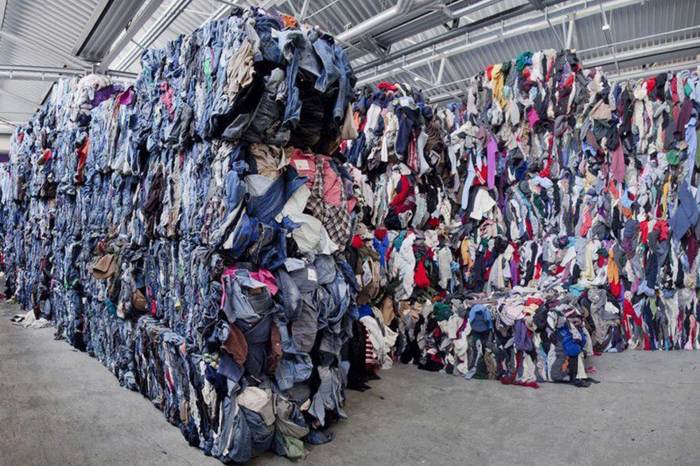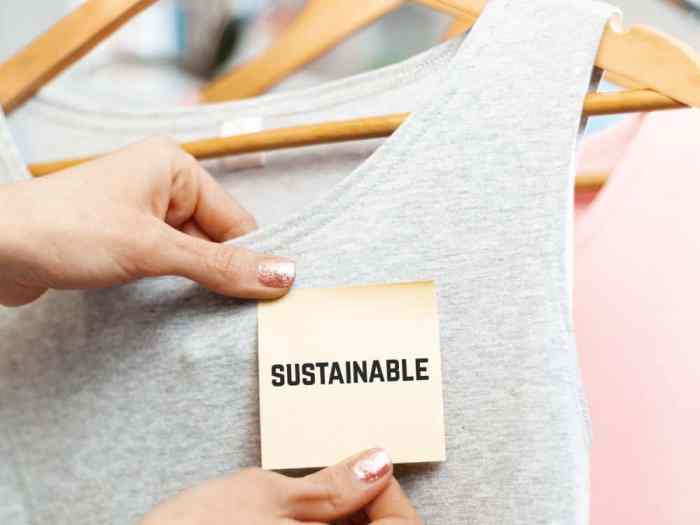Ethical fashion practices are not just a trend, they are a movement towards a more sustainable and responsible industry. From using sustainable materials to ensuring fair wages, this topic delves into the heart of ethical fashion and its impact on the world of style.
Overview of Ethical Fashion Practices
Ethical fashion practices involve creating clothing, accessories, and footwear in a way that minimizes harm to people, animals, and the environment throughout the production process. This includes fair wages for workers, safe working conditions, sustainable sourcing of materials, and reducing waste and pollution.
The importance of ethical fashion in the industry cannot be overstated. It helps to ensure that workers are treated fairly and ethically, promotes environmental sustainability, and encourages transparency and accountability in the supply chain. Consumers are increasingly demanding ethically produced fashion, leading to a shift towards more responsible practices within the industry.
Examples of Well-Known Brands Following Ethical Fashion Practices
- Patagonia: Known for its commitment to environmental sustainability, fair labor practices, and transparency in its supply chain.
- People Tree: A pioneer in the fair trade fashion movement, People Tree works with marginalized producers to create ethical and sustainable clothing.
- Veja: This French footwear brand focuses on using sustainable materials and ethical production methods to create stylish sneakers.
Sustainable Materials and Sourcing: Ethical Fashion Practices

When it comes to ethical fashion practices, using sustainable materials is crucial for reducing the environmental impact of the fashion industry.
Sourcing materials ethically not only ensures fair treatment of workers but also helps in preserving the environment by reducing pollution, deforestation, and other harmful practices.
Innovative Sustainable Materials
- Bamboo: Known for its fast growth and minimal water requirements, bamboo is a sustainable alternative to traditional cotton.
- Piñatex: Made from pineapple leaf fibers, Piñatex is a cruelty-free and sustainable alternative to leather.
- Recycled Polyester: By using recycled plastic bottles to create polyester fibers, this material helps reduce waste and energy consumption.
Fair Wages and Labor Practices

Ensuring fair wages and labor practices is crucial in ethical fashion to protect the rights and well-being of garment workers. Fair wages are essential to provide workers with a decent living, uplift communities, and reduce the risk of exploitation.
Importance of Fair Wages
- Fair wages ensure that garment workers can support themselves and their families without facing financial hardships.
- It promotes economic stability and reduces poverty in communities where factories are located.
- Fair wages can lead to improved productivity, quality of work, and overall job satisfaction among workers.
- By receiving fair compensation, workers are less vulnerable to exploitation and unsafe working conditions.
Role of Fair Labor Practices, Ethical fashion practices
- Fair labor practices include safe working conditions, reasonable working hours, and the prohibition of child labor.
- They ensure that workers are treated with dignity and respect, fostering a positive work environment.
- Fair labor practices contribute to the overall sustainability of the fashion industry by promoting social responsibility.
Companies Implementing Fair Wage Policies
- Patagonia: The outdoor clothing company is known for its commitment to fair labor practices and transparency in its supply chain.
- Eileen Fisher: This women’s clothing brand ensures fair wages for its workers and values sustainability throughout its production process.
- People Tree: A pioneer in fair trade fashion, People Tree works closely with artisans and ensures fair compensation for their work.
Transparency and Supply Chain Traceability
Transparency in fashion supply chains refers to the practice of openly sharing information about the production process, including where materials are sourced from, how garments are made, and the working conditions of employees. This allows consumers to make informed decisions and hold brands accountable for their practices.
Benefits of Traceable Supply Chains
- Builds Trust: By being transparent about their processes, brands can build trust with consumers who value ethical practices.
- Improves Accountability: Traceable supply chains make it easier to track and address any unethical practices or violations.
- Promotes Sustainability: Knowing where materials come from and how they are produced can help brands make more sustainable choices.
- Empowers Workers: Transparency can lead to better working conditions and fair wages for employees throughout the supply chain.
Brands Prioritizing Transparency
- Patagonia: Known for their commitment to transparency, Patagonia provides detailed information about their supply chain on their website.
- Everlane: Everlane is transparent about their pricing and production process, even breaking down the cost of each item on their website.
- Reformation: This brand not only focuses on sustainable materials but also shares information about their factories and carbon footprint.
- People Tree: People Tree has been a pioneer in ethical fashion, providing transparency about their Fair Trade practices and partnerships.





